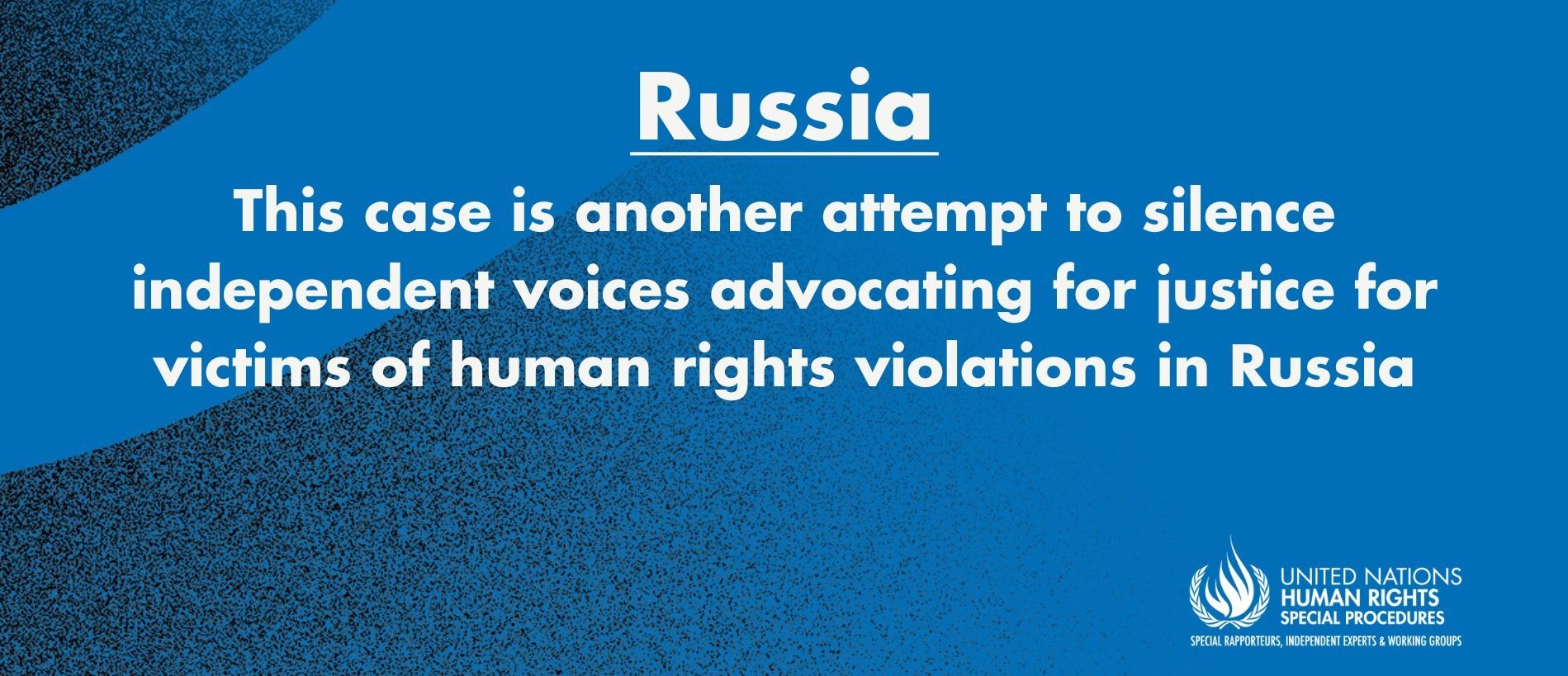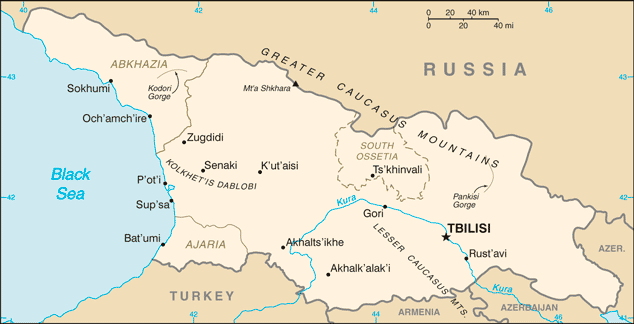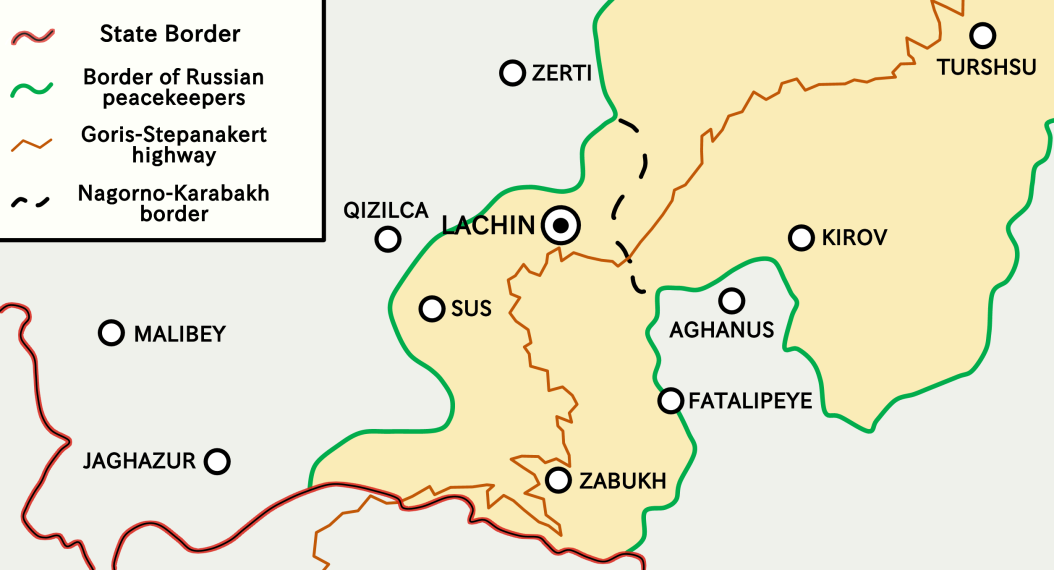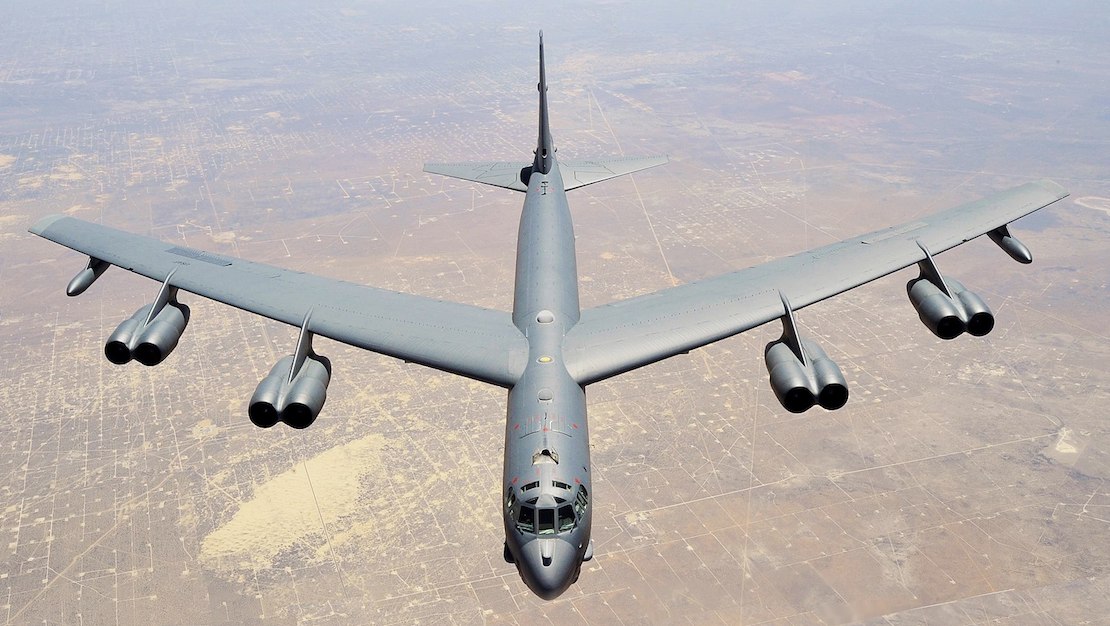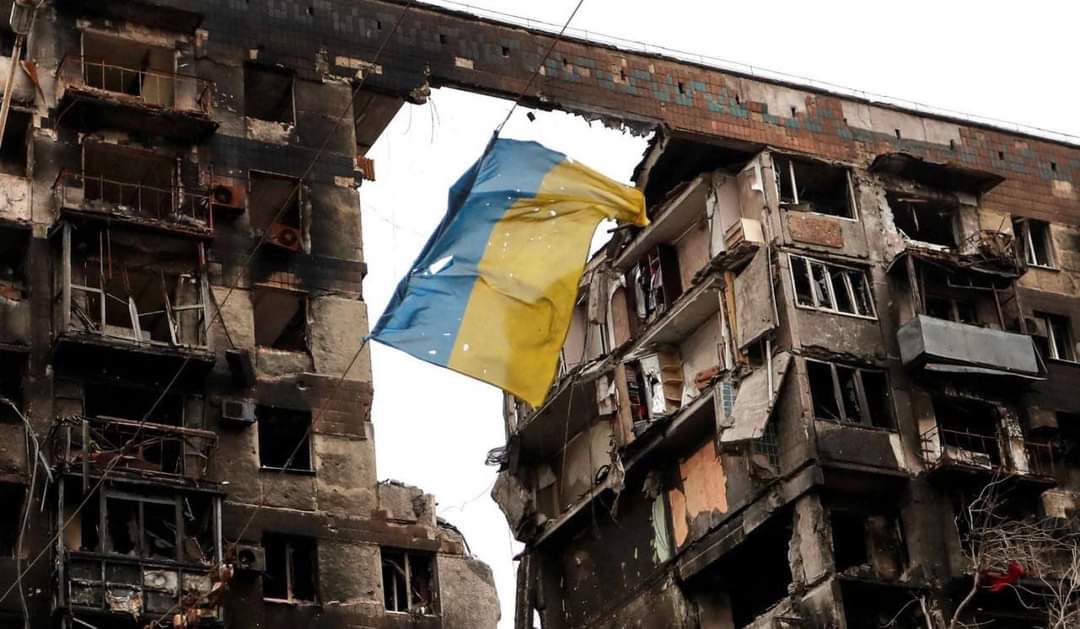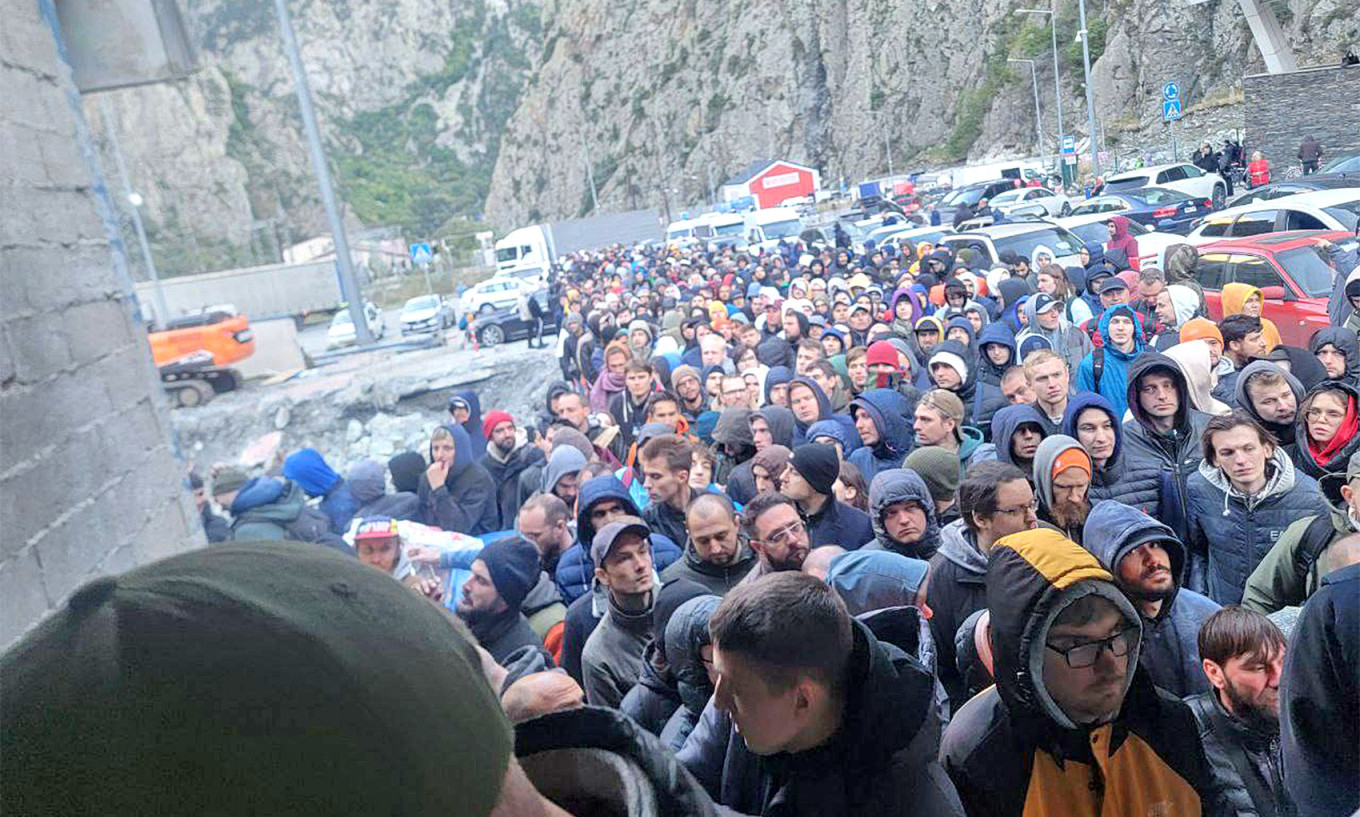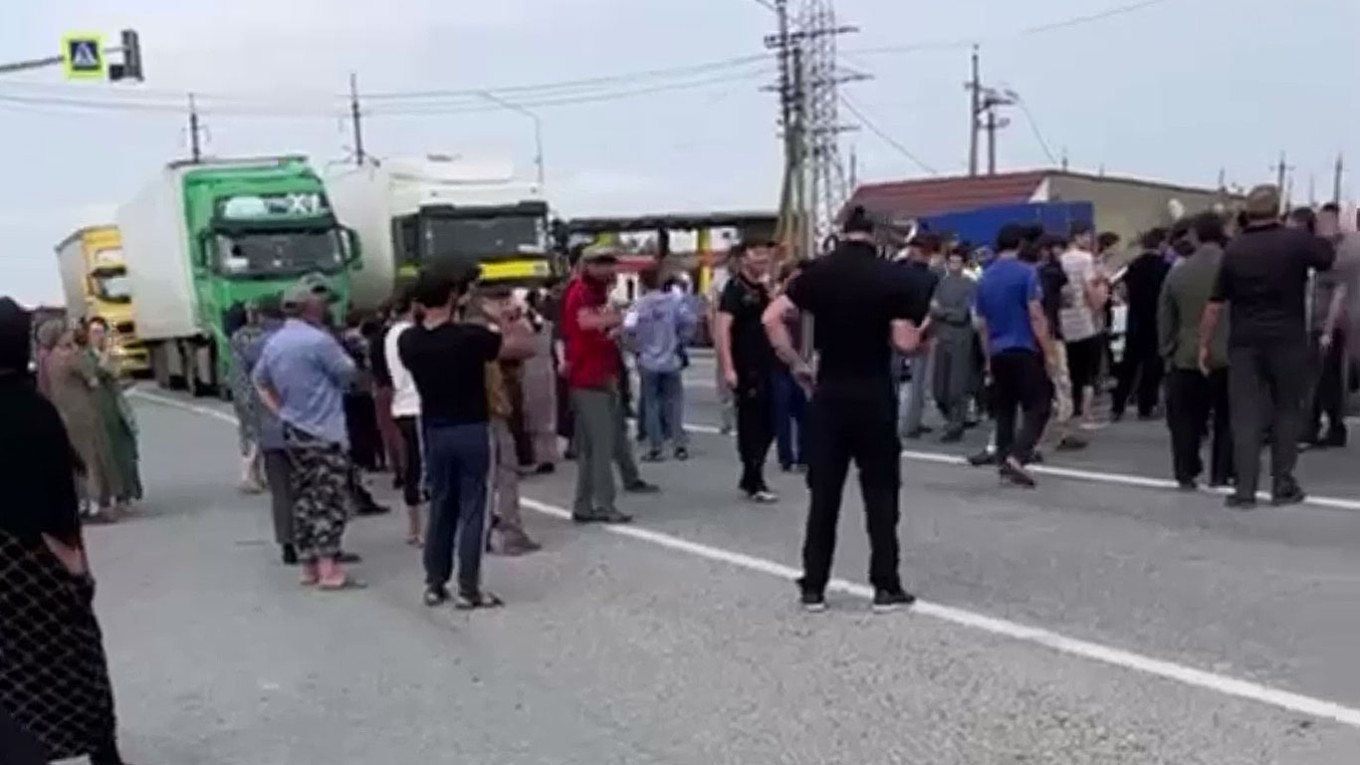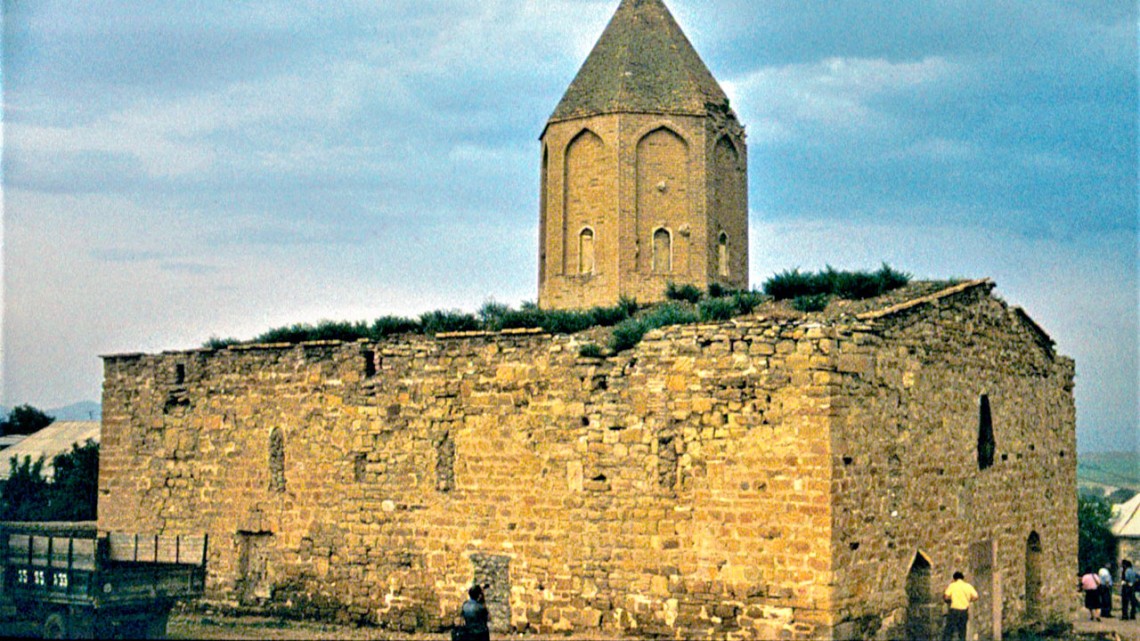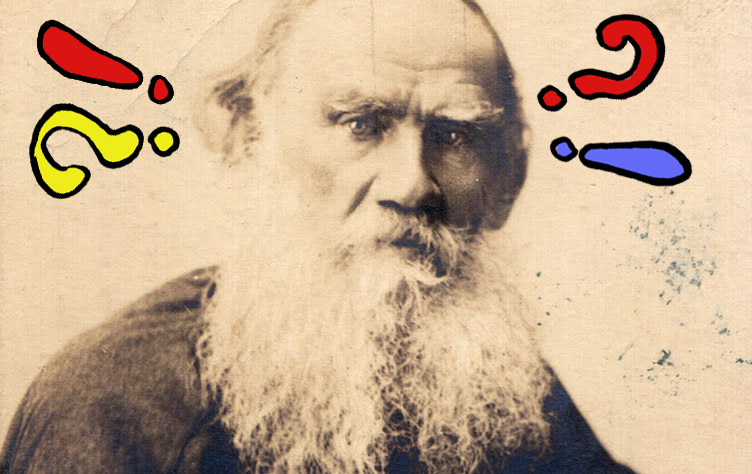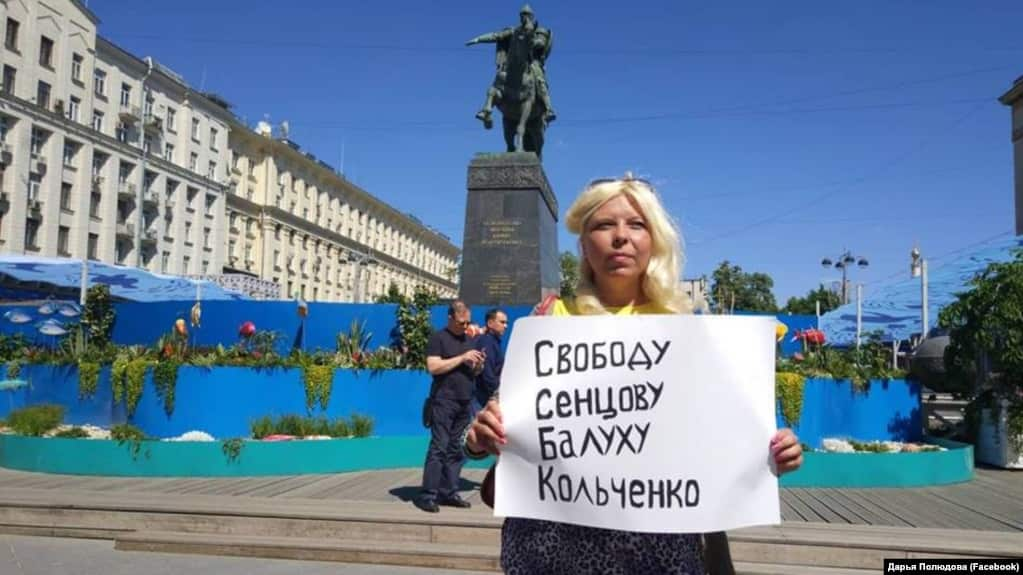
Solitary confinement for Russian anti-war dissident
Imprisoned Russian anti-war activist Darya Polyudova has been placed in punitive solitary confinement after guards said they found a razor-blade in her belongings, which is considered a major violation at the penal colony in the North Caucasus region of Kabardino-Balkaria where she is incarcerated. Polyudova’s mother told Radio Free Europe/Radio Liberty that her daughter said guards had planted the blade in her belongings to frame her, adding that the activist is starting a hunger strike to protest the move. Polyudova, affiliated with the Left Resistance dissident network, was sentenced to nine years in prison in December on “extremism” charges related to her nonviolent opposition to the Russian war in Ukraine. (Photo: Polyudova with sign calling for release of Ukrainians detained by Russia, including filmmaker Oleg Sentsov and Crimean anarchist Oleksandr Kolchenko. Via RFE/RL)



